Business
Capitalist Sage: How to fund your business growth [Podcast]
Published
5 years agoon
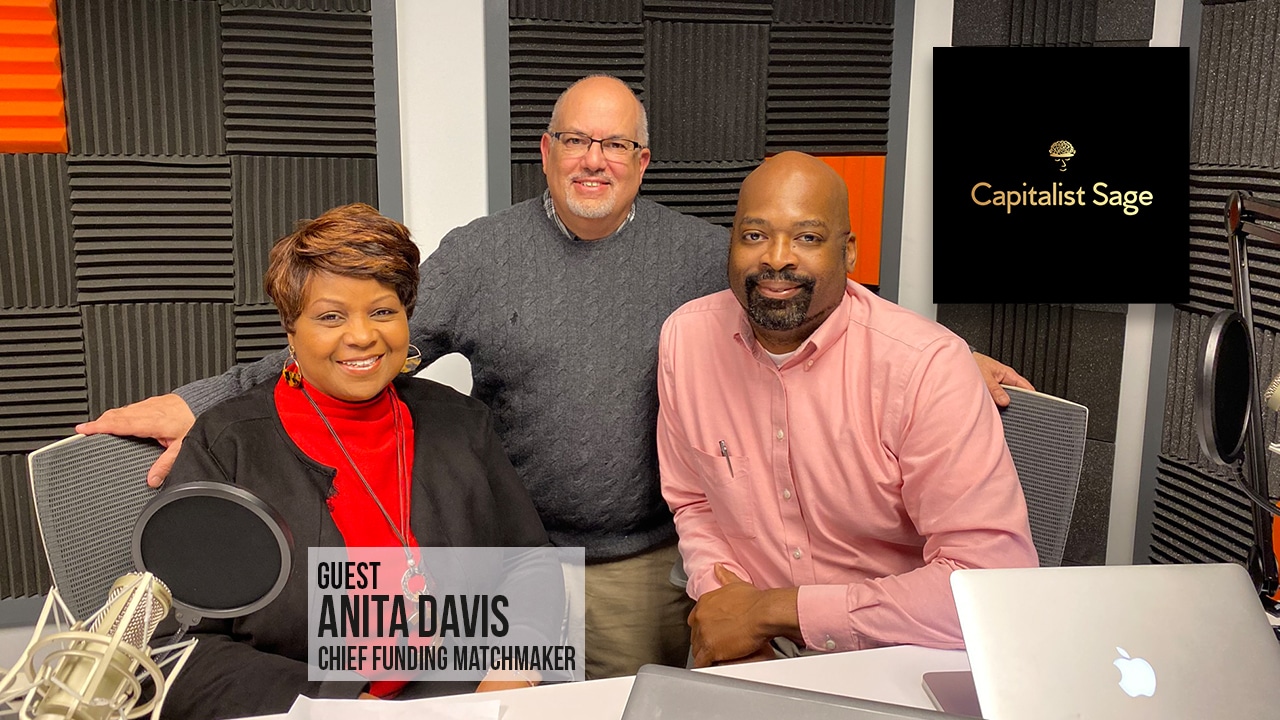
Business banking and funding your business can be intimidating. Luckily we have the help of business banking expert Anita Davis – Chief Funding Matchmaker, sharing her sage advise on how to access capital and fund your business growth through SBA and alternative loans. Join Karl Barham and Rico Figliolini on the latest episode.
Recorded at Atlanta Tech Park in the City of Peachtree Corners, Georgia.
Where in the podcast to find these topics:
[00:00:30] Intro
[00:04:42] When to Reach Out to a Bank
[00:05:31] Risk and Funding
[00:06:52] Credit and Funding
[00:11:28] Options for Funding an Acquisition
[00:13:54] Loan and Funding Rates
[00:16:09] What is SBA?
[00:22:43] SBA Structures
[00:24:39] Industries SBA doesn’t fund
[00:26:18] SBA Requirements
[00:29:15] Funding in 2020
[00:34:51] How to reach Anita
Resources:
Phone: (770) 365-0858
Website: Praxstra.com
Linkedin: Anita Davis
“So even with your good credit score, now they want to see not only your credit, they want to see your bank balances in their bank for over a period of time. And so what happens is people don’t know that, that the banks and all of these lending sources are already making the defense decisions about how they’re going to restructure and how that tightening up on that credit. And if you’re not prepared, you don’t have any projections, you don’t have any resources on your team to help you with that, then that’s that. That’s, that’s, this is the time to explore. Where can you get that support?”
Anita Davis
Podcast transcript
Karl: [00:00:30] Welcome to the Capitalist Sage podcast. We are here to bring you advice and tips from seasoned pros and experts to help you improve your business. I’m Karl Barham with Transworld Business Advisors, and my co-host is Rico Figliolini with Mighty Rockets Digital Marketing and the publisher of the Peachtree Corners Magazine. Hey, Rico. How’re you doing?
Rico: [00:00:45] Hey, Karl. Alright,
Karl: [00:00:47] Why don’t you introduce some of our sponsors today?
Rico: [00:00:50] Sure. I want to introduce our lead sponsor for the first time, Hargray Fiber. They are a business that is very unique to this area. The two piece is the city of Peachtree corners. Actually, they just moved in a little while ago. So they have philosophy is that every business is unique. That the, they craft customized solutions for our hundreds of businesses here in the Southeast that based out of Savannah, they’re looking to work with small businesses to create affordable bundle services on other, that level or even enterprise cause this level where they can talk about managed, bundled sites, full suite of managed IT services and all that. So they customize a solution. Every business that needs fiber cable in there. Our sponsor. Thank you for doing that. No matter what industry though, you run you should take a look at them. They can do internet, TV and phone solutions and they can meet your local need and be local so you’re not dealing with a cable company that then you have to call some service and they might or might not show up.
Karl: [00:01:52] Well, they’re in a perfect spot if they’re looking at growth for business. Peachtree Corners has a lot going there. Atlanta Tech Park and Curiosity Lab and all the businesses that are joining the community. So glad to have them onboard as a sponsor and also a member of the business community.
Rico: [00:02:07] And the other thing too, Atlanta TechPark, right? We’re here in the podcast studios, Atlanta Tech Park in the City of Peachtree Corners.
Karl: [00:02:14] Yup. Wonderful coworking space for folks that are building their business. There’s 70 plus companies here, events held here throughout. we have a network of resources available to entrepreneurs to be able to leverage, to grow their business. And Atlanta Tech Park are right here in Technology Park, in Peachtree Corners. Come check out Atlanta Tech Park. Well, today’s guest is Anita Davis. She is the founder, president of the chief funding matchmaker of Praxis Strategic Solutions. It’s a consulting firm that helps companies fund business expansion that, and also they’re able to help support corporate and government customers and training people on funding and business, et cetera. So really thankful to have you join us today. And today’s topic we want to talk about, it really relates to funding, funding your business growth. Anybody that knows and owns a business knows that to grow a business takes input of resources, both capital and people and time and strategies. But right now, if you’re looking at the beginning of 2020 it’s the time to look at what are the funding needs you’re going to need over the next year? And we’re here to talk about the different options that are available from
SBA to some alternatives, and some of the things you should be thinking about and misconceptions of seeking bank funding for your endeavors. So anyway, why don’t you tell us a little bit about how you got into this?
Anita: [00:03:49] Thank you so much for having me. First of all, it’s, it’s a pleasure to be here and always talking about money. I am the money lady, so I love money. I used to be a banker for 20 years. A business banker and a commercial lender. And so that is where my passion has come from. I started my own firm four years ago under the name Business To Banker Connection, because I connect people with money and I’ve navigate the funding process for my clients. My passion is to make sure that small businesses that are intimidated by the process of acquiring capital to grow their companies, have somebody to navigate that for them. Most of my companies that I work with, Karl and Rico, they are small companies and they don’t have a CFO in place to navigate that for them. So they hire me to take care of that process for them, and I make sure, let’s say I can direct them directly to the places that’s going to give them the capital that they need to grow.
Karl: [00:04:42] Oh, it’s fabulous. It’s, it’s interesting when, when you start thinking about, lending, what are some of the, when, when do, should people start considering whether or not they need to reach out to a bank to start funding, what would be your recommendation?
Anita: [00:04:57] So you need to know when you have expired your capacity to internally manage that growth. Then you have more clients than you can fund their needs. Or you’re expanding, you need equipment, or maybe you’re growing and you need to ask staff and space that that will require some outside funding solutions. So when you can no longer internally generate enough to run the business and or scale the company, then you need to start thinking about your capital structure and where are you going to go for that funding.
Karl: [00:05:31] The saying that, you know, every funding decision from a banker is a risk decision. Can you explain what that really means? When people start talking about risk and funding, what are, what are things looking at?
Anita: [00:05:43] So when I’m working with my clients, that’s the first thing that we talk about. Every decision, whether it’s bank funding or whether it’s any external nontraditional funding, every funding decision is really a risk. Decision and their risk decision. It’s around what is the likelihood that this company is going to default and not pay us back. And then the second question that’s always asked is, given a loss, what is the likelihood that we would be given a default? What is the likelihood that we’re going to take a loss on this funding opportunity? So most clients don’t think about funding from that perspective. They don’t think they know, I have a need. This is what I need, and this is what we can do. And they have, they’re clear about their position, but they’re not really clear that the bank is making a totally different view on it. The view is what is, what is their history of repayment? Are they stable and can they support this new funding requests that they’re making? And so they make that decision with a totally different set of eyes that I is on risk
Rico: [00:06:52] Relevant right perspective, I guess. So every business owner thinks they do it really well. Maybe, although not everyone’s credit report is pristine, you know, everyone looks at a certain rate and said, well, you know, it’s cheap money out there. It’s like whatever, 0% from the, from the money fund there, but you know, really you’re lending out at a certain rate, maybe four and a quarter or mortgage or more. But individual bankers, business owners, you know, their, their backgrounds may be different than credit reports may be different for a variety of reasons. How long would that affect the way you would approach something like that for, for them?
Anita: [00:07:29] Credit is very important in the funding process because even if it’s a nontraditional solution, credit is going to come into play. Most clients that I, that I work with, actually, most people think about it from their experience with their home mortgage, that everybody can understand buying a car or purchasing their home and they, and they think about funding from that perspective. But business funding is totally different from that. They’re not looking at that. Again, they’re looking at the risk and the process and one of the things, one of the qualifiers that determines whether or not you are a good risk is your credit history because that’s a standardized process that’s standard for everybody. In the United States you have a credit score. If that credit score is certain, a certain level, and that means you’re a good risk decision. If it’s below a certain level, then you’re probably not as strong about above decision, I mean, good risk for that institution. It could be a bank and it may not be a bank. So even when they are not looking at, say your performance in your company to determine the qualifications for a lending decision, they’re going to look at credit. So that’s why I always encourage people, if you’re going into business or if you are in business, make sure that that part of your business growth strategy is intact. And then if it’s not intact that you’re putting in some processes and plans to strengthen that because it’s always going to put you in a better position. So I always encourage my clients, get in the 700 club and try and stay there. The 700 club is a good place to be because it really is a differentiator between whether you’re going to get a good pricing on whatever that funding solution is, or you’re going to pay a premium. And when you start to pay premiums, that takes out money from your bottom line that you can take home to feed your family and put your kids in school and do all the things that you really want to do.
Rico: [00:09:17] So it doesn’t necessarily negate you from getting a loan. It’s just the guys shoot from getting the best rate for the loan.
Anita: [00:09:23] And that depends on how unhealthy that credit score is because they can, the gate, you can’t prevent you from acquiring capital, but if it’s not, so 680 is considered a decent and good credit score, 700 is safer and you’re, you’re on the road to being really great. And, so that determines really what they’re going to, determine the right that you’re going to pay for your, whatever it is that you need.
Karl: [00:09:46] You’re highlighting something that I think a lot of people don’t think when they’re thinking of starting a business, they start thinking of the idea. They may start looking at a plan and how they’re going to market it and how they’re going to sell. But they never look at their personal financial situation. And if I were to advise anyone looking to start a business, or even someone who has an that owns a business today, it’s maybe talking with your financial planner or your people that advise you and make sure that part is solid. So if you know you’ve got some hits on your credit. If your debt ratio is off balance before you ask someone else to lend and invest in you in your business, show that you’re able to get control of your own finances and drive your credit score. And that might take two or three years before you do it. But it’s something that everyone could start working on. Know what their score is today, understand what it takes to get into 700 club and make those adjustments to their personal lives, budgets, whatever their situation is. So they could be a good risk for lenders.
Anita: [00:10:52] That is such a, that’s just an accurate way to capture that, capsulize that because it’s really important for you to plan for, your business funding your business. Because even if it’s going to be self funded to a degree, you’re going to have to buy something outside of what you do to make your business run. If every decision is going to cost you money. And so if you don’t understand what that cost of capital is, then you’re going to end up paying more. Or if your credit is not in a position to get you to the best rates that you can, then it’s just going to take you longer to pay it off or cost you more in the long run.
Karl: [00:11:28] So I know, I know in my world, most businesses that we look to find buyers for are funded through some kind of lending. And it’s, it’s, it’s a high in the 75 to 80% are, especially if they get into a larger value. Can you share, the various options people have for funding growth or funding an acquisition?
Anita: [00:11:53] So most people fund acquisitions that I know of and have experienced with through bank funding of some sort and bank funding. You have two different kinds of options with the bank funding. If you are a strong solid and have a really strong savings account or some kind of investment vehicle, then you can find that traditionally. Through a conventionally through our traditional wall. But most lenders like to add a SBA guarantee on to that process. So the SBA guarantee does a couple of things. It guarantees that the bank will, if they invest in your bright idea, in your company that if there is a default, again, the risk process, if there’s a default, then the gate, the bank is guaranteed that they’ll get back 75 to 90% of the monies that they lent. The other benefit of looking at it through SBA guarantee, even from the bank’s perspective and from the buyer’s perspective, is that your cash injection in terms of long, it’s less. So your requirement that you have to come up with, for a conventional loan, it’s typically going to be 20% of that acquisition. If you are in a riskier business, sometimes they want more than 20% for that acquisition. However, SBA guarantee tacked on to that loan requests will minimize that, bring that cash injection down to 10% and for a riskier business, another 5% that may be 15% and say a riskier business would be maybe a gas station, a convenience store, car washes, things like that, that they have a special use. Those kinds of business acquisitions really require some additional risk from the lender’s standpoint and from the SBA standpoint. So they have a
higher cash injection requirement. But if you are solid enough to get a bank acquisition and you have the extra funding, then your rates are probably going to be a little bit lower because with that additional SBA guarantee comes a little bit of a price hike.
Karl: [00:13:54] When you, when you think about people buying, their experience with bank lending, it comes with buying a house and mortgage and you often see people making that mortgage decision a lot around what is the rate they’re getting for that long? They’re looking quarter points and half point. If you’re looking at a commercial loan for business, is it the same thing? Is the rate the biggest sole determination of who you should lead with and who you should work with or well, the other factor that they should consider?
Anita: [00:14:21] So rate is very important in terms of just, you know, how much it’s going to cost you to maintain it and pay the loan over time. However, the biggest thing you want to do when you want to make an acquisition is know am I able to able to make this business profitable and what would the little profitable profits look like over time. So you may pay a different rate. So again, the rate structure that you will pay for personal loan or mortgage loan, that is not going to be the way they process and review and analyze a decision to make a business acquisition. So the whole process is completely different. They’re going to be looking at the cashflow of the business and is it, is it likely to be stable? And if you’re making an acquisition, there’s your background and your history in that industry. Right? Inland to you. I’m having more success in the business. And so those factors, your, your historical performance and knowledge in that industry is going to be an important factor when you’re making an acquisition. The, the, and sometimes that can determine your rate and then the money that you have to invest in. So you are your resources that you have after you’ve made that investment is very, very important because people are like, okay, I can come up with my 10% now, but it’s going to suck up every resource that I have in order to be able to do that. So if that’s the case, what a, the bank wants to know is that you’re going to have some kind of reserves. Is there something to fall back on in the event that all of those cash flows that that came to the business came to bear when you just purchased the business, is that going to automatically transition over time? Because there’s usually a difference than a ramp up. When you change management, you change only shifts, different styles, different plans, different strategies. All of those things come into play, and so those are some of the factors that you should consider when you’re making an acquisition. That’s where the lender is going to be looking at when you’re making an acquisition as well.
Karl: [00:16:09] Okay. So you think about, we’ve been using this term SBA and, and it should be fair. Some people may not be familiar with what that is, the small business administration and loan. Can you tell us a little bit about the history of that and what that is and how it’s helped people get into small businesses?
Anita: [00:16:27] Yeah. The small business administration is, a government entity. And that government entity is designed to help small businesses prosper, to, to start to prosper and to grow and scale. Cause really small businesses really make up the bulk of the economy and, and in jobs resources available. So since this small businesses are run in the country, it is
vested in, the government has a vested interest in making sure that small businesses succeed. So what they do, the small business administration is not a direct lender. They use outside resources like banks and some other non-bank, funding resources to you to guarantee that indeed that there is a loss. Again, the risk and all, I was going back to that risk. If there is a loss that the bank will not have to bear that whole burden or whoever that funding source is, they won’t have to bear the full burden of that loss. The government will come in and back up that loan, and that’s a very, very strong mitigant right. For a lender to, to, to have as a resource in the event that there is there, there’s a challenge with that loan.
Rico: [00:17:40] Cause the, does the sba then provide a better chance of getting a loan? Like if I went to the bank, normally obviously the rules would be a little bit more stringent on a, on a direct loan from a bank without the SBA. Does this guarantee? Sort of makes it less trenchant.
Anita: [00:17:59] It’s considered a mitigant. It mitigates the risk involved with taking on a newer, younger business that may not have been established or is not well established in that.
Rico: [00:18:12] Are there specific things though that SBA will forgive or look over, if you will? The specific guidelines that someone can look at and say, Oh, okay, well, if I went this SBA route, maybe I need one year less financial information, maybe, you know, is there, aside from money going down maybe?
Anita: [00:18:31] So you talked about a little bit about their investment. Their capital investment is, it’s usually less, but also the credit score requirement may be a little bit more flexible. If you have a SBA guarantee that industry may, maybe, they may not like that industry, but they would lend in the event that there is a SBA guarantee. To shore up that long. It could be, your, just your background, you don’t have, the lender may not be comfortable enough to lend you a conventionally because you don’t have enough history in that industry. So a SBA guarantee can be a mitigate. And so usually what I think, from my history as a banker when a bank is, is looking at a mitigation, they will mitigate maybe one one shortfall. They’re not going to mitigate, you know, you can’t be, had bad credit. No, you’re no bad idea. No history, cause they’re not going to mitigate all of them. But say for instance, if, if most, if you have most of the requirements and there’s one short fall, that would, would not allow a bank to be comfortable enough to make a conventional loan to you, then they all say. This SBA can come in and mitigate that risk. Typically, one of the other things that we haven’t talked about is collateral. So you know the business, the lender’s decision, again, we talked about the likelihood of a default and then the probability of a loss given a default. That is what the SBA guarantee is really designed to help shore up that short falling collateral because most people when they start a business, they may have some of the resources that they need, but they don’t have a lot of collateral to support that. So if you are a business that you’re not buying equipment where the equipment is going to be in the collateral, you’re not buying a building where the building would be the collateral. I’m buying a business, right? I’m buying a business and you’re getting good wheel for that. The name of that business, and maybe their client list. There’s nothing for a bank
to say that we can fall back on what? Nothing. There’s nothing there. So, right. So the SBA guarantee becomes that mitigate.
Karl: [00:20:33] So if you think about it, and when I also think about that as well. Some business historically had a lot of assets. Maybe it was a building, and the business was sort of building other value that the bank could lend on. If something happened, they could take the building and sell it to someone else. It could be the equipment. But if you think about it in the last 40 years, the shift to service industries, what is a software company? Someone that’s generating software, e-commerce habits, assets. What does anybody that owns that, a medical practice or things that delivering service, beauty salons or these service oriented, you would think the economy expanded in the service industry so much. How would banks fund those types when they don’t have assets? The SBA allows working, cashflow for the business to make up some of that, to look, this business is good. It has got a track record, and if people are able to, to fund and pay off the loan, but a traditional bank would say, but I want assets. I want something. And I think that’s what the SBA is, is created to help close the gap.
Rico: [00:21:36] They might even look at, let’s say a hair salon or, or a medical practice and said, well, you know, those patients. Like the practitioner practitioners gone with those 80% of that business disappear or melt away. You know, over a year. I can see issues like that.
Anita: [00:21:53] Yeah. Those are very, very real issues when you are making a decision to make an acquisition. So they want to know what, what’s going to still be there to stabilize the company. And that’s why it’s so important that the new owner, the purchaser of that business to have some background in it. And so, or if they don’t have background themselves, that they hire talent that has the background to manage the day to day operations.
Rico: [00:22:16] And this goes back to what you’ve taught me, is that you want a business where there’s a manager managing the business. You essentially, that you’re not coming in to do that part of it necessarily. You’re coming in there to do the other parts of it.
Karl: [00:22:30] Yeah. I mean, the infrastructure and the leadership team in place in the business insurance, better continuity. So it’s not all relying on just the owner of the business that’s generating all of, all of the value in the business, is key.
Rico: [00:22:43] I did have another question too. I mean, it’s been a loan sounds, like it’s an SBA loan, but all the different, various SBA loans, different levels or different, products or structures?
Anita: [00:22:56] Structures. Probably structures would be, or products could, you could use either one, but, there are several different SBA products that are out here on the market that are available. So if you want to a traditional working capital loan, if you’re a small business looking for something under $350,000 and some bangs, $250,000 they’ll end up the SBA express product. And that’s a product that doesn’t require as much collateral. Usually for younger companies or companies that don’t need a great deal of capital. Once you get over and get over
that $350,000 mark, then you’re probably moving into a larger loan category. That 350 up to $5 million, will allow you to get a SBA 7(a) Loan. And that loan is designed a lot around working capital, but you can do quite a few other things with it. You can purchase equipment, you can also get real estate with that loan, and it’ll allow you to get the working capital needs as well as, say a building and the equipment that you might need to run a building inside that inside the building with a 7(a) loan, and then the other product that’s very, very attractive. One of my favorites for commercial real estate purchases, the SBA 504 loan and that loan allows you to have a lower cash injection in it, and it’s strictly for business and maybe heavy equipment that might go inside. There’s a building that would be maybe attached to the building as opposed to small pieces of computers. You wouldn’t buy that on the real estate.
Rico: [00:24:21] Commercial real estate? Not residential necessarily.
Anita: [00:24:26] Absolutely not residential. So the SBA does not fund residential use, and it does not fund any residential products. It is, SBA is for commercial acquisitions, commercial purchases, commercial, commercial activity only.
Karl: [00:24:39] There’s some industries that they do not fund, some financials. And what are some of the industries?
Anita: [00:24:46] Well, some of the ones that, so the SBA does have a little bit more flexibility than maybe your average bank that you would see on the corner. They, they will fund, they will not fund typically, if you are in business to lend money to somebody else, they don’t fund that. They don’t find any, what’s the right word? Sexual kinds… Thank you. That was the word that would come to my brain. But adult entertainment, they don’t find some of those. And those are restricted and prohibited. They don’t find any businesses if you are renting, so say for instance, in Atlanta tech park, if they want it because they lease space out to another tenant. They don’t fund those kinds of business. They consider that investment real estate and they won’t fund those. So those are some, some a few that come to mind.
Rico: [00:25:38] Just to kind of piggyback off that. So if I wanted to buy a commercial building, put my business in it. It also rent maybe a couple of spaces out of the to help with the mortgage payments.
Anita: [00:25:47] That’s a good differentiator. So if you are going to operate 51% of the business with your company, that will be the difference where you can lease out the space. As a matter of fact, I just, we’re closing on a loan for $1 million, an acquisition of a building and she is going to be written now 49%. Oh, that too, to another tenant. So they will allow that. But you have to maintain the majority of that they’re building for your own business. Square footage Is the differentiator.
Karl: [00:26:18] Are there things that when you work with clients and they go through the best pay process and now they’re, well, they’re in underwriting. Things that they, they, that they find
out or learn that that, may cause them pause. Things that they could be aware that they may be asked to do or, or things that they may have to account for that the SBA requires. is there, are there any things like that, that you’ve seen people have paused with.
Anita: [00:26:43] Absolutely. In this process, the SBA process is, it’s beneficial that in ways that will allow you to get access to the capital. But it is a very stringent process. So the government is, it does a lot of due diligence around making sure that your business is viable and legitimate in order to, to grow so credit. I can tell you that, for instance, recently I’ve experienced, companies that have a really good business model and good cash flow, but bad credit from the owners, they will pass, they will pass, or they will make you go through a credit repair process so it can delay the process. Some of the other things that you said they, they do look at, all of your business, all of your resources when they, when you’re looking at an SBA loan. So if you have a house that has equity, because they are going to be gaming at 90 or 70 to 90% guarantee, they’re going to take all of their global assets that you have, as, as a lien, they’re going to put a lien on it. So that’s something that people, sometimes that gives them heartburn. But it’s a true thing and it’s a very real thing that you need to know on the front end. I would hate to somebody about getting in the middle of that process and didn’t know that. Yeah, you should know that on from the first conversation that you really have.
Karl: [00:28:00] Is when you, in most cases, when you go down that path. They most likely will ask for a personal guarantee that would be secured against your all your personal assets in the business.
Anita: [00:28:12] Absolutely personal guarantee is required. And typically almost every business loan, whether it’s conventional, well, I shouldn’t say every conventional and SBA funding, some of the outside nontraditional lenders may not require your personal guarantee. But if you’re going to look at conventional SBA funding that you do have to guarantee it personally, anybody who has 20% or more ownership in the business will have to guarantee. So if you have partners, everybody who owns 20% or more. So I used to tell people, if you’re going to get partners, make sure you cut them off at 19% you know, or give them, you know, under 20% so that they won’t have to go through that funding process. And they look at any additional businesses that you may have. So some people are going into a second or third business there. They’re going to look at everything that you have to make sure that your capacity to pay that obligation back is met.
Rico: [00:29:03] And it doesn’t matter the corporate structure, it could be LLC or C corporation. There’s no, no?
Anita: [00:29:09] There is no differentiation in that in terms of whether you guarantee the loan. Yeah, the structure doesn’t matter.
Karl: [00:29:15] Okay. I’m wondering about if you’re going into 2020 anything that’s trending in the SBA world and lending world that you see coming. What should business owners know. About over the next say, year or so that they should, that should impact their decision on when and how and why they should seek funding.
Anita: [00:29:34] Thank you for asking that question because I think it’s when I’m telling my clients and anybody that I’m in front of and speaking opportunities, I’m asking them to pay close attention to our economy. The recession that has been teeter tottering over the last year. We’re in a good economy today, but economic cycles happen. So we are, we are due for another economic downturn, economic cycles. We’re in a 10th year of a, a progressive, robust economic cycle. But it is going to end and it will probably end soon. And typically, when we have an economic downturn in the country, what happens is credit titans. So if your company is healthy, like you mentioned earlier, if a customer or is thinking about getting capital and they’re healthy enough to get capital, they haven’t done it yet, this is the time to do it. And also rates are really, really good right now, but I don’t think it’s going to be sustained for, you know, indefinite years. So you need to start thinking about that and you should never wait to get funding until you desperately need it because you desperately will not get it. So you have to be in a healthy position in order to acquire capital. So I think the recession and the economic conditions, the election will impact what’s, what, what rates and what the, what’s happening in our economy. Obviously, it always does. And one of the things that I’m particularly an advocate of is for people to understand when you’re looking at easy capital, easy money, some of the online lending, some of those quick and easy resources that you know you get in the mail. The cost of that capital can be very, very expensive. And I, people come to me saying, you know, I’ve got a couple of these loans and if it really, really easy for me to give, but now they’re in my checking account every day, every week, every month. And those kinds of, capital funding solutions sometimes they’re not sustainable. I tell people, the only time that I would recommend one of those kinds of solutions for funding is if you, for instance, maybe had an opportunity to buy some books, inventory, and you knew that you can turn that inventory in a short period of time and get in and out of that obligation. Obligations are designed to just be 12 months long, so they’re so short term that the payment repayment structure on them is so difficult for most people to maintain that as one of the, that’s the second thing that I would say, you shouldn’t look at as an outside of the Academy.
Karl: [00:32:05] Yeah. That you, you mentioned those, those loans and that short term, they were originally designed for someone that received a PO for a big order from some big company and you had to outlay for inventory or get things built and bring in, but you have certainty that you’re going to sell them, so you have to fund it. It’s expanded to, you know, I need money and you may not, yeah, I got this hip product, I’m going to buy all this inventory. It’s going to sell, and if it doesn’t sell, you still owe for that money and now you’ve got inventory that you get a discount. So really being careful, and that’s where I think planning. Is if, if, if there’s one thing that business owner can do is develop a robust planning process that includes understanding projection of financials of their business. Because through that process, they’ll start to discover where they might have cash flow short needs or growth and how to fund it
efficiently at the right time so they’re not in desperate measures and they can do scenario testing. What if it’s 20% more, 20% less, and having those discussions and having a lender, somebody that’s expert in finding sourcing funding. On their team advising them on, here are your options. If you decide now, these are your options and these are the potential pros and cons. If you wait, that’s, this isn’t later, your options shrink to these fewer options. And at least when people have that information, they can make better informed decisions.
Anita: [00:33:36] And, and I agree with that. I’ll give you a quick example because I work with lots of lenders, lots of banks, lots of non bank lenders across the country. And one of my lending sources that I had that, that was just three months ago. I’m doing unsecure working capital to those, 700 club, clients that I work with often too. They were doing unsecured credit lines based on, on your good credit score. Now, because they know that the economic conditions in this country are about to change now they don’t offer that solution. You now you have to bank with them for over 12 months. And then after 12 months, they’ll let you look at a, a secure vehicle. So even with your good credit score, now they want to see not only your, your credit, they want to see your bank balances in their bank for over a period of time. And so what happens is people don’t know that, that the banks and all of these lending sources are already making the defense decisions about how they’re going to restructure and how that tightening up on that credit. And if you’re not prepared, you don’t have any projections, you don’t have any resources on your team to help you with that, then that’s that. That’s, that’s, this is the time to explore. Where can you get that support?
Karl: [00:34:51] I like the, a little bit about, you know, if folks wanted to learn more about, what you do and how you help client navigate these waters, what’s the best way they can reach you?
Anita: [00:35:03] The best way to reach me, LinkedIn is a great way to reach me at Anita Davis on LinkedIn because I’m in the process of rebranding, but you can also give me a call at the company (770) 365-0858. That is a good number to reach me and look for Praxstra.com. That is my new website as we rebrand.
Karl: [00:35:28] So I’m wondering, what do you have coming up? Do you have anything coming up? over the next few weeks and months?
Anita: [00:35:34] I have lots of things coming up Karl. I’m, I’m teaching a class. Who are on tomorrow, here in Atlanta tech park. And we’re talking about funding and we’re going to go into a deeper dive conversation over all of the different funding solutions that are available. But I also have other, workshops and conversations on podcasts from being invited to speak. And then this summer I’m working with the WE bank, which is the women’s enterprise business national council that, certifies women business owners that are having a national conference here this summer. And I am on the host committee for that. So it allows me and other women business owners to get an app access to corporate and government contracting. Great things going all for Praxis.
Karl: [00:36:18] Well, absolutely. Well, well, I want to thank you very much. Anita Davis, chief funding matchmaker for Praxis Strategic Solutions, for your time and, and helping to begin to unravel. I think we’re going to have to have you come back a little bit and we can peel back the onion on some more topics around, around funding. You provided some great kind of advice and things for people to think about and I just say to anyone out there that’s, that’s thinking about their 2020, if they think they might need funding, and if they don’t know, they can reach out to their advisors, they can contact me, Karl Barham at Transworld Business Advisors, we tell business owners help navigate, their, their business strategy and including, you know, when they’re ready to exit their business. Well, it’s really important to have that discussion, put a plan down on paper, and have these conversations with people that can help get you funding for, for, for the businesses that they, that they have. I also want to thank Atlanta Tech Park, for hosting the Capitalist Sage Podcast. And, and, and if you’re interested in starting a business, having access to folks like, Anita and others here through various forum gives you knowledge and information to be more successful and build networks around that and also a few here you can meet. Rico, who’s also here doing a fantastic job with the Peachtree Corner Magazine. So why don’t you tell us a little bit about what you’ve got coming up?
Rico: [00:37:49] Sure. So Peachtree Corners Magazine, we’re working on the next issue, the first week of February, it’s February/March issue. The Major feature in that issue is innovative companies in Peachtree Corners. So that’ll be, we’ll be discussing half a dozen companies. We’ve interviewed already about four or five, tech firms, and there’ll be an article about some of the other innovative companies here in Peachtree Corners and a few other good stories in there. So, you should pick up a copy. It will go to our Facebook page, if you’re watching the live stream, there would be Peachtree Corners Life, Facebook and like us on that page. If you’re listening to the podcast, go to LivingInPeachtreeCorners.com. You can find out all sorts of new things going on in the city and they’ll associate the digital edition on there. And if you’re looking to, because I do other things. If you’re looking to do online content, brandings, social media, video, product, product videos, and such, go to MightyRockets.com and maybe I can help you there.
Karl: [00:38:50] Oh, fabulous. I’d also mention iTunes, iHeartRadio, Spotify, spreaker. If you’re a business owner, I get it, You’re busy. I get it. You don’t have time to show up at every, lecture or workshop and so on, but you do have time in your car if you’re in Atlanta to listen to a podcast and, and learn stuff that could help you improve your business. So with that I want to thank, thank you for tuning in. I’m Karl Barham and Rico Figliolini for Capitalist Sage podcast. Thank you.
Rico: [00:39:24] Thank you guys. Thanks.
Anita: [00:39:26] Absolutely. Thank you for having me.
Related
Business
Peachtree Corners Grows Business Opportunities Through Economic Development
Published
3 days agoon
May 6, 2025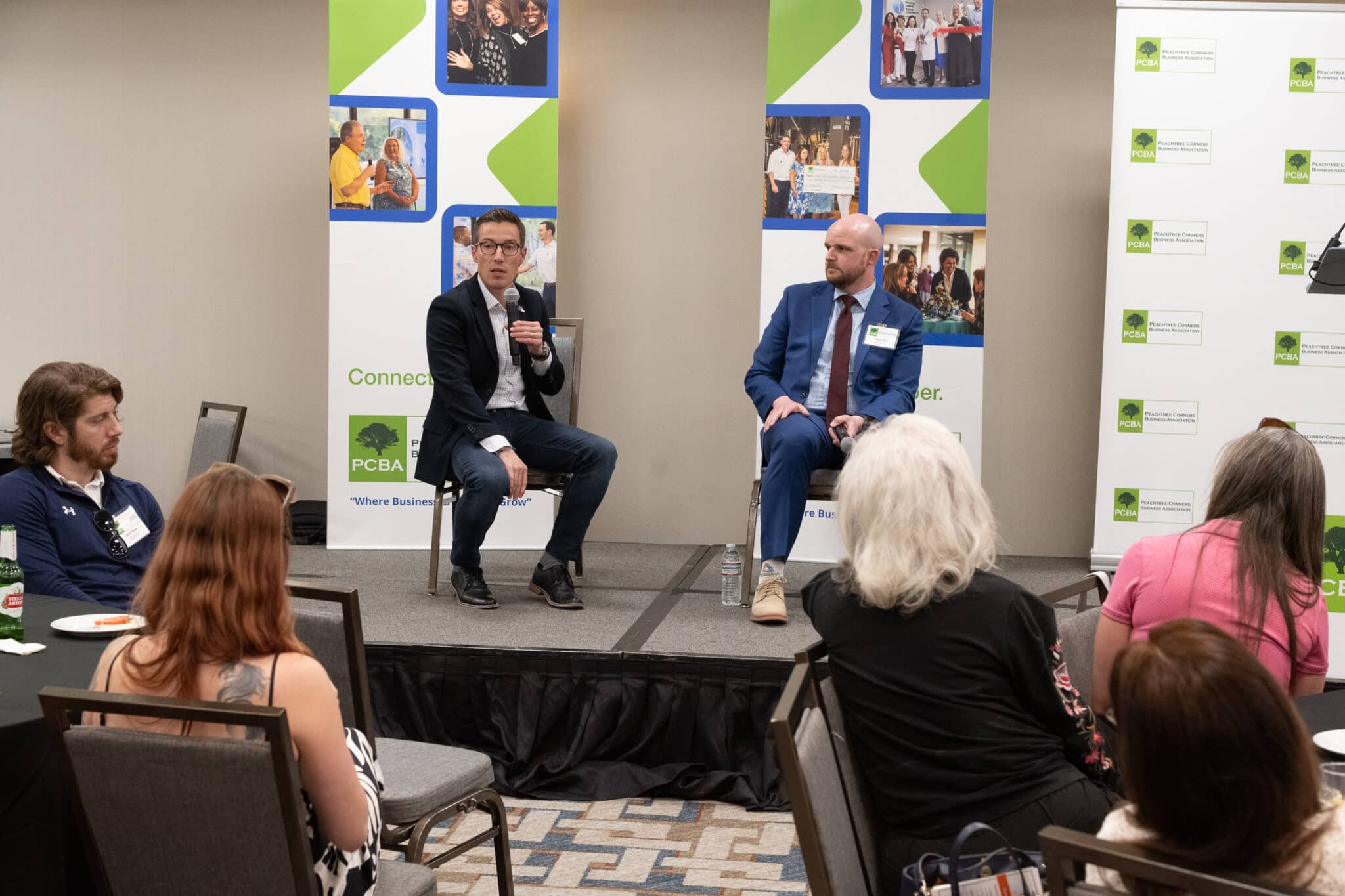
Most residents and business owners in Peachtree Corners probably think they know all about the economic development and strategic planning of Peachtree Corners, but do they really?
Peachtree Corners Business Association invited Peachtree Corners Economic Development Director Betrand Lapoire and Partnership Gwinnett Director of Economic Development Andrew Hickey to its After Hours Speaker Series on March 27 to discuss the city’s growth from a 1971 master plan to a bustling city with 42,000 inhabitants and 40,000 jobs.
Key points included the importance of business retention and expansion, with 24 projects last year creating 1,600 retained jobs, 1,600 new jobs and $250 million in new capital investment.
The Curiosity Lab, a world-class innovation center, was emphasized as a significant attraction. The city’s zoning and infrastructure plans were also discussed, focusing on balancing office and residential development to maintain a vibrant, sustainable community.
Matching jobs to residents
Although Peachtree Corners is just a teenager in terms of being an incorporated city, the foundation for this vibrant, fast-paced economic hub was laid more than 50 years ago by technology pioneer Paul Duke.
“Peachtree Corners was the first master-planned, business innovation technology park in metro Atlanta,” said Lapoire. “It was in response to the brain drain of technology with Georgia Tech graduates leaving the area.”
While the city may have a small-town feel, it’s the largest in Gwinnett County by population, but not land mass, he added.

“The city started from a commercial, industrial, R&D base and then was expanded around it,” said Lapoire.
Though home to more than 42,000 residents, most of the jobs in Peachtree Corners are filled by people who live outside the city, he added.
“So we have this interesting mismatch, in a way, although not unusual,” said LaPoire. That creates traffic and transit issues. So that means that one of the solutions is to create more jobs here to fit the profile of the community.”
He presented charts that show professional services, consulting and engineering as the largest job categories. The next tier of businesses are wholesale and manufacturing.
“So we have a good mix of industry,” he said.
A five-year plan
The city has a five-year economic development plan (2023-2028) that outlines strategies for attracting and retaining businesses, with education and workforce development being key components.
Partnership Gwinnett has similar goals as Peachtree Corners, but on a larger scale.
“We are the county’s sales and marketing arm for all 17 cities now, and we receive funding from both municipal sources as well as existing businesses here — both in Gwinnett and outside of Gwinnett as well,” said Hickey.
He shared how Partnership Gwinnett is designed to drive a lot of major corporations toward doing business inside and with Gwinnett County.
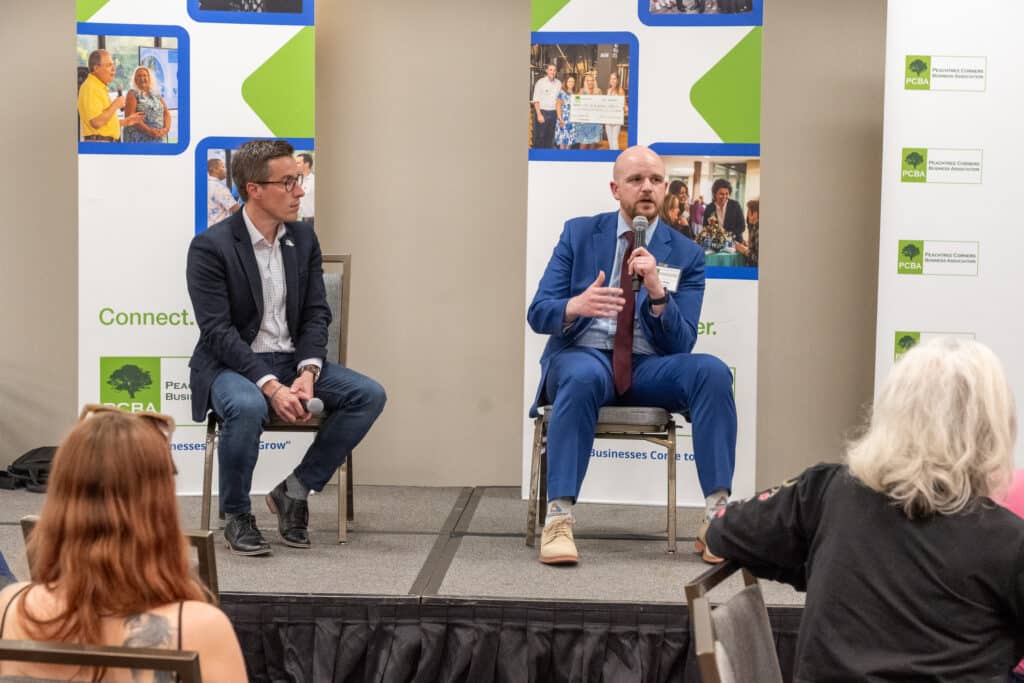
“One of the biggest things that we talk about that I’m sure it seems like most of us here, if you live here, you work here, you understand it. It’s the diversity that exists here in Gwinnett,” he said. “With a diversity index of 85, that means if we walk out of the Hilton here and we say hello to somebody, there’s an 85% chance they’re from a different ethnic or cultural background than ourselves, which to you and I may seem normal because that’s the life that we live in.”
He added that for companies, there’s a tremendous value in that, whether they have stated values, or they’re just making hiring decisions to get a wide range of candidates to fill those roles. Additionally, because of the proximity to Atlanta, Gwinnett County has a great labor draw.
Partnership Gwinnett
Partnership Gwinnett plays a significant role in recruiting businesses, expanding existing companies and developing the workforce. Hickey showed how the organization was involved with more than 24 projects last year.
“A majority of those were expansions, and that is a common thread you’ll see in economic development,” he said. “In business retention, expansion is so vital to working with our existing companies to make sure that they have the resources they need.”
He added that’s what leads to new investment and job creation in the community.
The organization also focuses on redevelopment projects, working with cities and the county to improve infrastructure and community amenities — especially strong educational institutions such Georgia Gwinnett College, Philadelphia College of Osteopathic Medicine and others.
Quality of life
In closing, both men stressed the importance of recruiting companies and developing the workforce, along with one aspect that means a lot but may not be as obvious — quality of life.
“It’s definitely evident that people like to work where they live — the whole live, work play experience,” said Hickey. “I joke that the part that people really have the most questions about, and are most excited to learn about, is new events at The Forum or Gwinnett Place Mall.”
Although they want to know what’s the next major company coming to Gwinnett, people REALLY want to know about how to spend their leisure time.
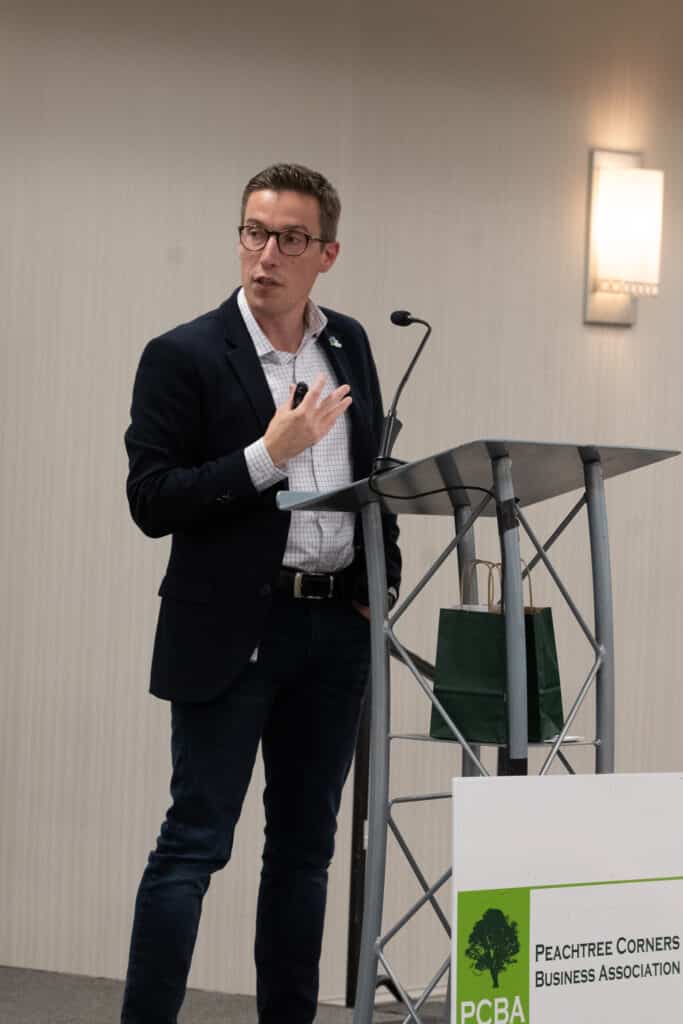
“That speaks to the importance of ensuring that we have a great community,” he said. “So at Partnership Gwinnett we work with all of our cities, and the county government as well, [on] a kind of a best-practices trip.”
He added that the peer tour allows everyone to know what the neighboring communities are doing and share the good news.
“We will take all of these elected officials, but also city staff, to different cities across the Southeast,” he said. “Last year, I believe they went to Huntsville, and have been to Greenville, Chattanooga — all cities that have done some really cool redevelopments that have taken their city to the next level. Our goal is to learn from them.”
Related
Business
Two Peachtree Corners Business Leaders Named Finalists for EY Entrepreneur Award
Published
2 weeks agoon
April 23, 2025
Ernst & Young’s Entrepreneur Of The Year celebrates ambitious entrepreneurs who are shaping the future
Ernst & Young LLP (EY US) recently announced the finalists for the prestigious Entrepreneur Of The Year 2025 Southeast Award, and two local, Peachtree Corners business leaders — David Quirk, president and CEO of DLB Associates Consulting Engineers PC and Erin Hanson, founder and CEO of Guardian Sports — made the list.
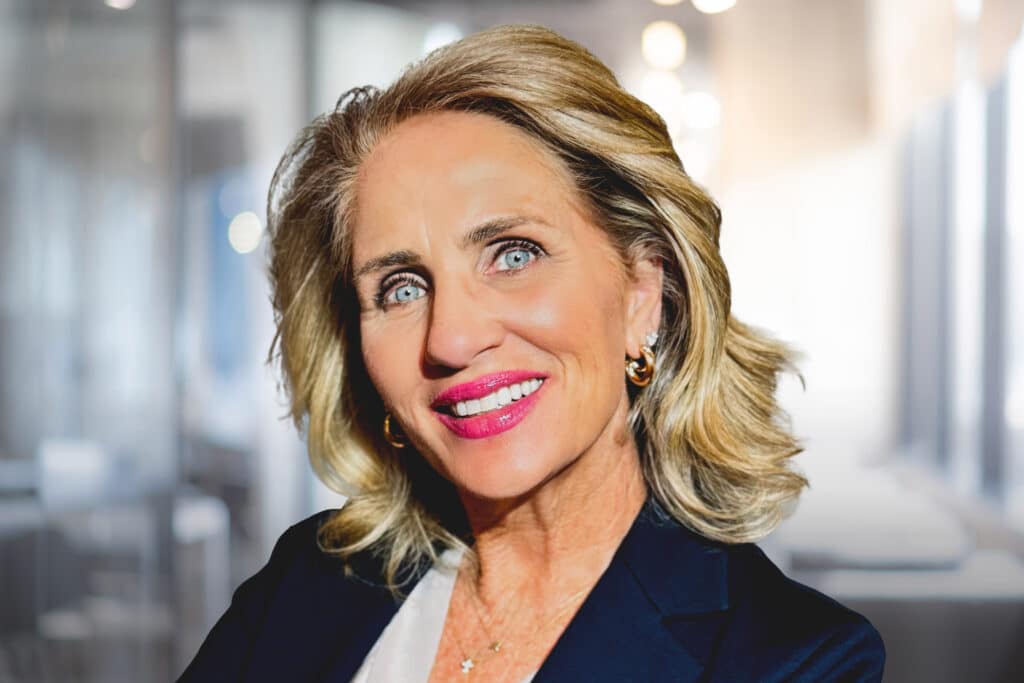
Hanson’s Guardian Sports is a family-owned company dedicated to serving athletes through safety and performance improvements in sports equipment. Major products include the Guardian Cap, PEARL ball and Guardian Infill serving the sports industry.

DLB Associates is a U.S.-based consulting engineering firm specializing in mission-critical and complex built environments. With more than 40 years of expertise, DLB delivers innovative, technology-driven solutions in engineering, commissioning and operations worldwide.
Celebrating entrepreneurial leaders
Now in its 40th year, Entrepreneur Of The Year recognizes the bold leaders who disrupt markets through the world’s most ground-breaking companies, revolutionizing industries and making a profound impact on communities. The program honors those entrepreneurs whose innovations shape the future and pave the way for a thriving economy and a hopeful tomorrow.
The Southeast program celebrates entrepreneurs from Alabama, Georgia, North Carolina, South Carolina and Tennessee.
An independent panel of judges selected 36 finalists for their entrepreneurial spirit, purpose, growth and lasting impact in building long-term value.
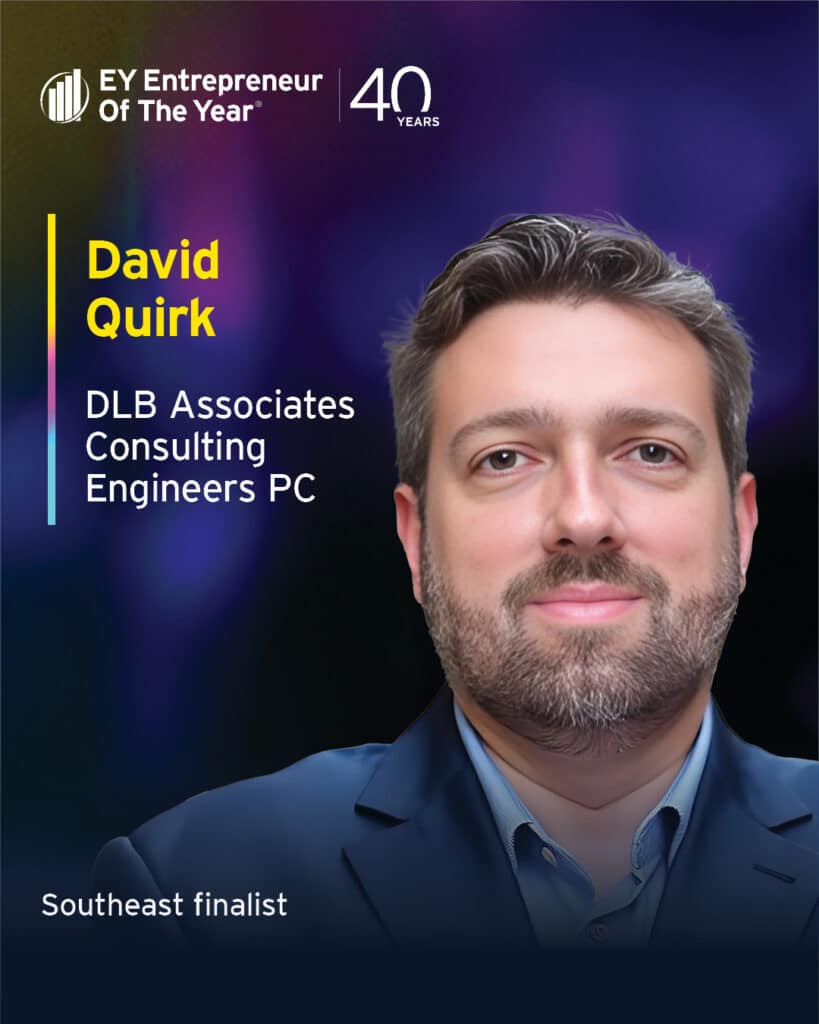

“This year’s finalists are leading examples of innovation, perseverance and resilience, illuminating paths to a brighter future for their industries and communities,” said Chevy Arnold, Entrepreneur Of The Year Southeast Program co-director.
“Their commitment to excellence transforms challenges into opportunities, inspiring us all,” added Kimberly Kicklighter, Entrepreneur Of The Year Southeast Program co-director.
Entrepreneur Of The Year honors many different types of business leaders for their ingenuity, courage and entrepreneurial spirit.
The program showcases original founders who bootstrapped their business from inception or who raised outside capital to grow their company; transformational CEOs who infused innovation into an existing organization to catapult its trajectory; and multigenerational family business leaders who reimagined a legacy business model to strengthen it for the future.
Including Quirk and Hanson, the 2025 Southeast finalists are:
- Marc Hodulich | 29029 | Atlanta, Georgia
- Damon Stafford | Alpine Intel | Charlotte, North Carolina
- Lou Hensley | Aspida | Durham, North Carolina
- Matthew Dent | Buffalo Rock Company | Birmingham, Alabama
- Melanie Little | Colonial Pipeline Company | Alpharetta, Georgia
- Will Bartholomew | D1 Training | Franklin, Tennessee
- Rene Diaz | Diaz Foods | Atlanta, Georgia
- David Quirk | DLB Associates Consulting Engineers PC | Peachtree Corners, Georgia
- Markus Scott | EyeQ Monitoring | Atlanta, Georgia
- Jon Gosier | FilmHedge | Atlanta, Georgia
- John Fitzpatrick | Force Marketing | Atlanta, Georgia
- Dr. Barry Patel | Galt Companies | Atlanta, Georgia
- Dr. Wade Smith | Galt Companies | Atlanta, Georgia
- Charles Gillespie | Gambling.com Group | Charlotte, North Carolina
- Kevin McCrystle | Gambling.com Group | Charlotte, North Carolina
- Mike Griffin | Griffin Brothers Companies | Cornelius, North Carolina
- Erin Hanson | Guardian Sports | Peachtree Corners, Georgia
- Dan Beem | Hissho Sushi | Charlotte, North Carolina
- Aaron Siegel | Home Team BBQ | Charleston, South Carolina
- Marc Murphy | Ignite Digital Services | Charleston, South Carolina
- Miller Chalk | Inglett & Stubbs, LLC | Mableton, Georgia
- Liza Rodewald | Instant Teams | Southern Pines, North Carolina
- Stephen Andresen | McClancy Foods & Flavors | Fort Mill, South Carolina
- Travis LeFever | Mission Mobile Medical Group | Greensboro, North Carolina
- Cyrus Mojdehi | Northway Homes | Charlotte, North Carolina
- Connor Ryan | NutraSky | Alpharetta, Georgia
- Fritz Owens | OTR Solutions | Roswell, Georgia
- Christopher Chuang | Relay, Inc. | Raleigh, North Carolina
- Kurt Jacobus | restor3d, Inc. | Durham, North Carolina
- Tom Kendrot | Shearwater Health | Nashville, Tennessee
- Teak Shore | Southern Lighting Source | Cumberland, Georgia
- Cindy Eckert | Sprout Pharmaceuticals | Raleigh, North Carolina
- Bryan Moore | TalkShopLive Inc. | Nashville, Tennessee
- Tina Moore | TalkShopLive Inc. | Nashville, Tennessee
- Igor Marinelli | Tractian | Atlanta, Georgia
- Joan Butters | Xsolis | Franklin, Tennessee
You can learn more about the finalists at ey.com/en_us/entrepreneur-of-the-year-us/southeast/winners-finalists.
Regional award winners will be announced on June 25 during a special celebration. The winners will then be considered by the national independent panel of judges for the Entrepreneur Of The Year National Awards, which will be presented in November at the annual Strategic Growth Forum®, one of the nation’s most prestigious gatherings of high-growth, market-leading companies.

About Entrepreneur Of The Year
Founded in 1986, Entrepreneur Of The Year has celebrated more than 11,000 ambitious visionaries who are leading successful, dynamic businesses in the U.S., and it has since expanded to nearly 60 countries globally.
The U.S. program consists of 17 regional programs whose panels of independent judges select the regional award winners every June. Those winners compete for national recognition at the Strategic Growth Forum® in November where national finalists and award winners are announced.
The overall national winner represents the U.S. at the EY World Entrepreneur Of The Year™ competition.
For more about the award, visit ey.com/us/eoy.
Related
Business
SCB Construction Group Partners with CGA Reps on New Peachtree Corners HQ
Published
3 weeks agoon
April 15, 2025
SCB Construction Group, freshly rebranded from SteelCo, secures construction project with CGA Reps for new office HQ in Peachtree Corners
SCB Construction Group has announced a strategic partnership with CGA Reps to build a new office headquarters in Peachtree Corners. The project, encompassing approximately 26,000 square feet of innovative workspace, marks a significant milestone in advancing CGA Reps’ corporate vision while showcasing SBA Construction Group’s commitment to delivering transformative construction solutions.
In collaboration with Oakley Real Estate Partners — serving as developers of the project on behalf of CGA Reps — this venture reflects a united effort to bring cutting-edge design (from Smallwood architecture firm) and operational excellence to the commercial kitchen equipment industry.
The announcement follows several high-profile projects for SCB Construction Group in 2024, including a 72,500-square-foot manufacturing center and headquarters for Process Equipment & Controls, an impressive interior build-out for Courtesy Ford Conyers’ commercial service center and the Phase 1 completion for StoreEase Loganville — recently honored as a 2024 Smart Facility of the Year by Modern Storage Media.
A bold new chapter for CGA Reps
The new 25,890-square-foot headquarters is designed to be more than just a workplace — it is envisioned as an inspiring environment that serves both client engagements and employee creativity. CGA Reps is recognized as an industry expert in commercial kitchen equipment, representing leading manufacturers, warehousing, distributing and installing everything from fryers to commercial walk-in freezers.

The facility’s design reflects this expertise, featuring a dedicated approximately 9,000-square-foot showroom kitchen that will host equipment demonstrations, tradeshows and webinars. This dynamic space will allow CGA Reps to showcase its comprehensive product range and provide clients with hands-on experiences of the latest commercial kitchen innovations.
A standout feature of the project is its innovative approach to stormwater management. With the site comprising only three acres, sufficient space for a traditional detention pond does not exist. To overcome this challenge, the design includes an underground detention system located beneath the truck court to efficiently handle all stormwater runoff.
This solution not only maximizes the use of the available land but also reinforces CGA Reps’ commitment to sustainable practices.
“We are excited to embark on this project with CGA Reps,” said Jay Bailey, CEO of SCB Construction Group. “This partnership underscores our commitment to customer excellence in design and construction, and it is a testament to the trust our clients place in our ability to deliver projects that not only meet but exceed expectations.”
Delivering excellence through proven expertise
SCB Construction Group’s track record in 2024 has been nothing short of remarkable. Earlier in the year, the company completed a 72,500 square foot manufacturing center for Process Equipment & Controls, integrating office space within a dynamic production facility.
This project was celebrated for its innovative design that balanced operational efficiency with a modern aesthetic, utilizing IMP panels to mimic tilt-up concrete, setting new standards for manufacturing environments.
Similarly, the interior build-out for Courtesy Ford Conyers’ commercial service center demonstrated SCB Construction Group’s ability to transform conventional spaces into functional and attractive environments that cater to both customer and staff needs.
The company’s commitment to quality and precision was again evident in the successful Phase 1 completion for StoreEase Loganville. This project, which recently earned the distinction of a 2024 Smart Facility of the Year by Modern Storage Media, highlights SCB Construction Group’s forward-thinking approach to construction and design, incorporating smart technologies and design that enhance sustainability and operational efficiency.
A rebranding that reflects a vision for the future
In a move that signals its evolution and growth, SCB Construction Group has recently rebranded from its former identity, SteelCo Buildings, as it spins off its construction division. This strategic rebranding is not merely cosmetic — it represents a renewed commitment to capabilities, credibility and client-focused service.
The refreshed brand is anchored by a new tagline “Deep Expertise, High Expectations” and a clear brand promise that communicates the company’s mission: to craft exceptional construction experiences based on precision, innovation and trust.
“Our rebranding is about more than just a new name or logo; it’s a renewed promise to our clients and communities,” explained Robert Lee, marketing director at SCB Construction Group. “We believe that our updated brand identity, including our invigorated tagline and mission statement, encapsulates our dedication to pushing the boundaries of design and construction. It reflects our commitment to creating spaces that are as inspiring as they are functional.”
Transforming spaces to inspire and connect
The new headquarters for CGA Reps is expected to become a landmark facility in Peachtree Corners. Beyond its impressive architectural design and advanced construction techniques, the building is planned as a hub for innovation and collaboration.
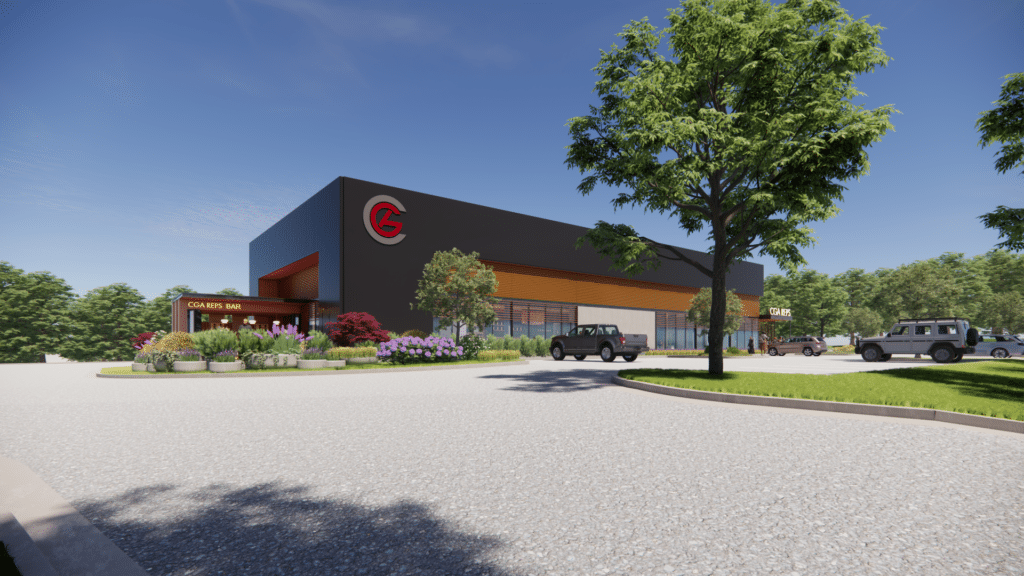
The interior build-out will include dynamic client reception areas, interactive meeting rooms, and dedicated spaces designed to foster creativity and teamwork among employees. The layout is crafted to ensure that every area of the facility contributes to a productive and inspiring work environment.
“By investing in this state-of-the-art facility, CGA Reps is making a strong statement about the future of work,” said Bryan Young, VP of construction at SCB Construction Group. “Our team is dedicated to designing and building spaces that not only serve the immediate needs of our clients but also create environments that motivate and inspire. The new headquarters will be a testament to that vision.”
Looking ahead
The partnership between SCB Construction Group and CGA Reps marks a significant step forward for both companies. As SCB Construction Group continues to build on its legacy of excellence and innovation, this project is poised to set a new benchmark for modern office headquarters design in the region.
With a strategic focus on creating spaces that inspire, connect and drive success, the future looks promising for both SCB Construction Group and its esteemed partner, CGA Reps.
For more information on the new headquarters project or to learn more about SCB Construction Group’s portfolio, visit scbcg.com.
Related
Read the Digital Edition
Subscribe
Keep Up With Peachtree Corners News
Join our mailing list to receive the latest news and updates from our team.
You have Successfully Subscribed!

Katherine Lafourcade — A Journey of Passion, Resilience and Giving Back

GA Tech Launches First-of-its-Kind GT Atrium in Peachtree Corners

Digital Edition

PCBA Announces 2025 Scholarship Winner

Paul Duke STEM High School Student Earns CGO Scholarship

World Blood Donor Day Starts Here: Theo’s Miracle, Katherine’s Mission [Podcast]

Official City Merchandise Line Debuts This Saturday at Town Green

Peachtree Corners Grows Business Opportunities Through Economic Development

City of Peachtree Corners Awarded Certificate of Achievement From GFOA for Seventh Straight Year

Simpson Elementary Marks Exceptional Children’s Week

Executive Function: A Tribute to Working Moms

Official City Merchandise Line Debuts This Saturday at Town Green

Peachtree Corners Grows Business Opportunities Through Economic Development

Digital Edition

World Blood Donor Day Starts Here: Theo’s Miracle, Katherine’s Mission [Podcast]

Paul Duke STEM High School Student Earns CGO Scholarship

Light up the Corners [Video]

Capitalist Sage: Business Leadership in Your Community [Podcast]

Cliff Bramble: A Culinary Adventure through Italy

Top 10 Brunch Places in Gwinnett County

A Hunger for Hospitality

THE CORNERS EPISODE 3 – BLAXICAN PART 1

Top 10 Indoor Things To Do This Winter

The ED Hour: What it takes to Remove Barriers from Education

Peachtree Corners Life
Topics and Categories
Trending
-
Digital Edition5 days ago
Digital Edition
-
Podcast5 days ago
World Blood Donor Day Starts Here: Theo’s Miracle, Katherine’s Mission [Podcast]
-
City of Peachtree Corners3 days ago
Official City Merchandise Line Debuts This Saturday at Town Green
-
Business3 days ago
Peachtree Corners Grows Business Opportunities Through Economic Development









